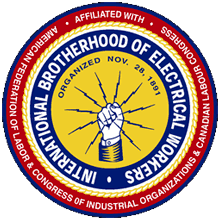June 18, 2015
By Steven Wishnia
“On his day you should give his wages, the sun should not set on it, because he is a poor man and his life depends on it,” the Book of Deuteronomy commands. In other words, the Torah instructs Jews that any form of stiffing a worker is morally wrong.
With that value ingrained in Jewish culture, the Workmen’s Circle, a 115-year-old organization originally founded to help Jewish immigrants, has become heavily involved in the campaign to raise the minimum wage to $15 an hour. “It connects to everything we do,” says executive director Ann Toback. “We’re a progressive social-justice organization that connects Jewish Americans with their progressive and cultural identities and engages them to action on their values.”
“There cannot be any excuse for full-time workers not to be able to support themselves,” Workmen’s Circle President Peter Pepper said June 16, introducing a panel discussion on the issue at the group’s Manhattan offices.
The discussion featured Steven M. Cohen, a professor of social policy at Hebrew Union College, talking about poverty among Jews; Patricia Kahalec, a lawyer in the labor-law enforcement section of state Attorney General Eric Schneiderman’s office; and Jonathan Westin of New York Communities for Change, talking about the “Fight for $15” organizing campaign.
Contrary to the widespread belief that most Jews are middle-class professionals, Cohen said, the scale of poverty among Jews in the New York area is “immense” and growing. According to a 2011 study he codirected for the United Jewish Appeal, among the more than 1.5 million Jews in New York City and Nassau, Suffolk, and Westchester counties, almost one-fifth are poor, such as a family of three living on less than $27,000 a year, and almost 500,000 are poor or “near-poor,” such as a single person who makes less than $28,000. That poverty is most highly concentrated among immigrants from Russia and the former Soviet Union, especially the elderly, and the Hasidim and the disabled. It’s most common in Brooklyn neighborhoods like Williamsburg, Borough Park, Gravesend, and Brighton Beach. But it’s far from confined to those groups or neighborhoods: The UJA survey found that roughly one-third of poor Jewish households included an adult with a college or graduate degree.
The number of Jewish poor in the New York area has increased by 50% in the last decade, Cohen added, so it’s not an issue about “other people.”
Low wages are a big component of poverty, said Kahalec, and her office has found a multitude of scams employers use to cheat people who are already paid little. She was shocked to learn that fast-food restaurant managers typically make $9.25 to $9.40 an hour. Common tactics include requiring employees to work early, late, or through lunch off the clock, and management confiscating tips—especially those paid by credit card instead of cash. Another is forcing cashiers to pay if their register balance is short. Some KFC franchise owners have evaded paying overtime by having employees who work more than 40 hours a week split their shifts between two different restaurants, she added.
“If we can win $15, we’re doubling the wage these workers were making two and a half years ago,” said Westin. The Fight for $15 campaign, which began among fast-food workers in the Brownsville and East New York sections of Brooklyn in 2012, is the first large-scale effort to organize low-wage workers since the Service Employees International Union’s Justice for Janitors campaign in 1990. The Brooklyn workers, he said, picked the $15 figure because anything less wouldn’t be even close to enough to pay their rent.
The campaign has successfully won public support, Westin said, because “people have really bought into the idea” that working should enable you to make a living.
“We are committed to building a Jewish table to support economic justice,” longtime labor activist Larry Moskowitz, recently hired as the Workmen’s Circle’s social-justice director,” said afterwards.
That table includes people organizing, lobbying, and participating in demonstrations such as the April 15 protests by low-wage workers. The “Jewish Coalition on the Fight for $15” includes several officials of the Jewish Labor Committee and Local 1199SEIU, Rabbi Michael E. Feinberg of the Greater NY Labor-Religion Coalition, the “progressive labor Zionist” group Habonim Dror, Jews for Racial & Economic Justice, the National Council of Jewish Women, and T’ruah: The Rabbinic Call for Human Rights.
“Our agenda is a living wage,” says Toback. “$15 is just a starting point.” These are “very similar battles” to the ones from the Workmen’s Circle’s early days, when the union movement was first stirring among the Jewish and Italian immigrant garment workers of the Lower East Side. “It’s exciting to see a groundswell of workers and activists coming together,” she says, and to see a movement that has a specific goal and has already won some victories. “It’s what’s right. It’s what’s ethical.”



